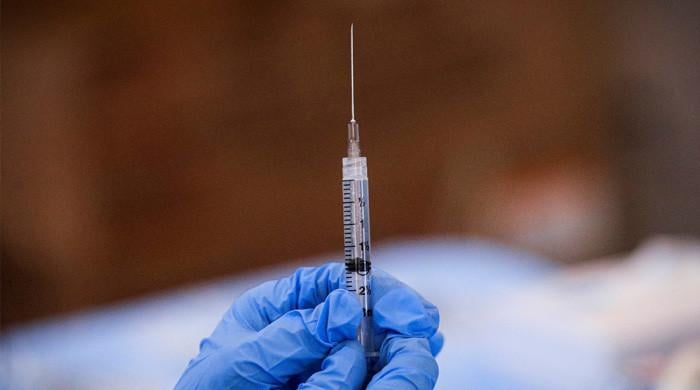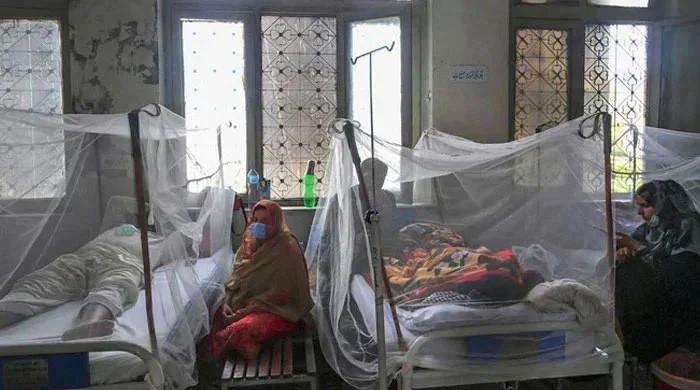New mpox strain is changing fast; African scientists are 'working blind' to respond
There are numerous unknowns about the virus and its severity, say scientists from Africa, Europe and US
August 27, 2024

LONDON/CHICAGO: Scientists studying the new mpox strain that has spread out of Democratic Republic of Congo say the virus is changing faster than expected, and often in areas where experts lack the funding and equipment to properly track it.
That means there are numerous unknowns about the virus itself, its severity and how it is transmitting, complicating the response, half a dozen scientists in Africa, Europe and the United States told Reuters.
Mpox, formerly known as monkeypox, has been a public health problem in parts of Africa since 1970, but received little global attention until it surged internationally in 2022, prompting the World Health Organisation to declare a global health emergency. That declaration ended 10 months later.
A new strain of the virus, known as clade Ib, has the world's attention again after the WHO declared a new health emergency.
The strain is a mutated version of clade I, a form of mpox spread by contact with infected animals that has been endemic in Congo for decades. Mpox typically causes flu-like symptoms and pus-filled lesions and can kill.
Congo has had more than 18,000 suspected clade I and clade Ib mpox cases and 615 deaths this year, according to the WHO. There have also been 222 confirmed clade Ib cases in four African countries in the last month, plus a case each in Sweden and Thailand in people with a travel history in Africa.
"I worry that in Africa, we are working blindly," said Dr Dimie Ogoina, an infectious diseases expert at Niger Delta University Hospital in Nigeria who chairs the WHO's mpox emergency committee. He first raised the alarm about potential sexual transmission of mpox in 2017, now an accepted route of spread for the virus.
"We don’t understand our outbreak very well, and if we don't understand our outbreak very well we will have difficulty addressing the problem in terms of transmission dynamics, the severity of the disease, risk factors of the disease," Ogoina said. "And I worry about the fact that the virus seems to be mutating and producing new strains."
He said it took clade IIb in Nigeria five years or more to evolve enough for sustained spread among humans, sparking the 2022 global outbreak. Clade Ib has done the same thing in less than a year.
Mpox is an orthopoxvirus, from the family that causes smallpox. Population-wide protection from a global smallpox vaccine campaign 50 years ago has waned, as the vaccinating stopped when the disease was eradicated.
Genetic sequencing of clade Ib infections, which the WHO estimates emerged mid-September 2023, show they carry a mutation known as APOBEC3, a signature of adaptation in humans.
The virus that causes mpox has typically been fairly stable and slow to mutate, but APOBEC-driven mutations can accelerate viral evolution, said Dr Miguel Paredes, who is studying the evolution of mpox and other viruses at Fred Hutchison Cancer Center in Seattle.











